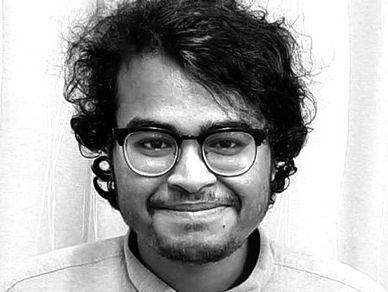Srijon Barua
Bodhisattva Chattopadhyay
Bodhisattva Chattopadhyay

Srijon Barua , coming from Bangladesh, is a student of Architecture and Urbanism. He has been part of multiple social development design projects in Japan and Bangladesh. His research and work are focused on under-flyover spatial use and area management under the term “post infrastructural adaptation”. Besides working for various NGOs and NPOs, Srijon has worked as lecturer in the University of Asia Pacific Dhaka for several years. Currently he is a MEXT , PhD candidate at Kyoto University.
Bodhisattva Chattopadhyay
Bodhisattva Chattopadhyay
Bodhisattva Chattopadhyay
Dr Bodhisattva Chattopadhyay is Associate Professor in Global Culture Studies atIKOS,University of Oslo,Norway. He leads the European Research Council funded research project CoFUTURES and its associatedi nternational network.Chattopadhyay is the recipient of numerous awards and prizes, including the World Fantasy Award (2020). His research website is www.cofutures.org
Debapriya Chakrabarti
Bodhisattva Chattopadhyay
Debapriya Chakrabarti

Dr Debapriya Chakrabarti is Lecturer in Architecture at the Manchester School of Architecture. She was an ESRC Postdoctoral Fellow at the department of Architecture, University of Manchester. She is the author of 'Heritage, Crafting Communities and Urban Transformation' (Routledge, 2023). Her research expertise is in informal practices, livelihoods, the human-infrastructure interface and sustainable urban transitions, focusing on marginalised communities in the Global South.
Qi Liu
Debapriya Chakrabarti

Dr Qi Liu holds a PhD in Human Geography from The University of Manchester. Her PhD project focused on how tourist practices and their interactions with hotel infrastructures escalate resource demand in a Chinese hot spring town. She is interested in applying social practice theories to understand the dynamics of sustainable consumption in tourism and everyday life in China, covering topics relating to energy and water demand, sustainable tourism, lifestyle mobility, and lived experiences of sustainability. She obtained a Mater degree from Renmin University of China (2017) and a Bachelor degree from Xiamen University (2015), both in Sociology.
Subham Mukherjee

Dr Subham Mukherjee is currently a Joint Berlin-Jerusalem Post-Doctoral Fellow at Freie Universität Berlin, Germany and The Hebrew University of Jerusalem, Israel, working on comparative study of water sensitive catchment management between Israel and Germany for mitigating flood risks in the costal urban areas.
Subham pursued his PhD on Urban Water Security at the Freie University of Berlin, for which he was awarded the DAAD full scholarship. He holds three Masters of Science degrees in Ecohydrology (Christian Albrecht University of Kiel, Germany), GIS for Catchment Dynamics and Management (University of Leeds, UK) and Remote Sensing and GIS (University of Burdwan, India).
.
.
.
.
This website uses cookies.
We use cookies to analyze website traffic and optimize your website experience. By accepting our use of cookies, your data will be aggregated with all other user data.